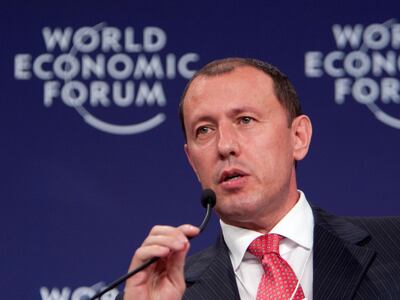The UK’s highest court threw out an attempt to overturn the first use of a new crime measure that could force the wife of a jailed banker to hand over a £12 million ($16m) home in London’s upmarket Knightsbridge district.
Officials imposed the country's first unexplained wealth order against Zamira Hajiyeva, whose husband is in prison in Azerbaijan, amid suspicions that the funds for the property were embezzled from the former Soviet republic.
The orders have been used four times since they were introduced in 2017 and are part of measures to tackle the UK's role as a destination for foreign politicians and officials to stash stolen funds.
They require the target of the investigation to provide details of the source of the funds for property and other assets to prove they were secured legitimately. If they are unable to do so, the assets can be confiscated.
The case received notoriety after court documents revealed that Ms Hajiyeva spent more than £16m in a decade at the upmarket department store Harrods.
The National Crime Agency, the UK body that investigates international corruption, imposed the order in 2018 and Ms Hajiyeva appealed all the way to the country's top court.
But the Supreme Court rejected her latest appeal and she now faces the loss of the home and a golf course in Berkshire, 50 kilometres west of London. The properties had a combined value of £22m at the start of the case.
Her husband Jahangir Hajiyev was jailed in 2016 for fraud and embezzling millions of dollars from the state-owned International Bank of Azerbaijan, but his wife continued to live in London on the suspected proceeds of his crimes.

Her grand, double-fronted home in the heart of Knightsbridge, bought for £11.5m in 2009, is just a few hundred metres from Harrods, where Ms Hajiyeva spent £150,000 in a single day on jewellery. Her lawyers claimed that her husband had been the victim of an unfair trial.
"This is a significant result," said Graeme Biggar of the NCA. "This was the first UWO secured and the NCA has been determined throughout the many legal challenges faced over the last two years. This case will set a helpful precedent for future cases.
“There are no further routes for Ms Hajiyeva to appeal against the order. She will now be required to provide the NCA with the information we are seeking in connection with these assets.”
The orders were successfully used against a businessman in Leeds with links to convicted criminals who was this year forced to hand over his £10m property empire.
In another case, the daughter and grandson of Nurali Aliyev, former president of Kazakhstan, successfully appealed against their UWO and it was overturned in April.


